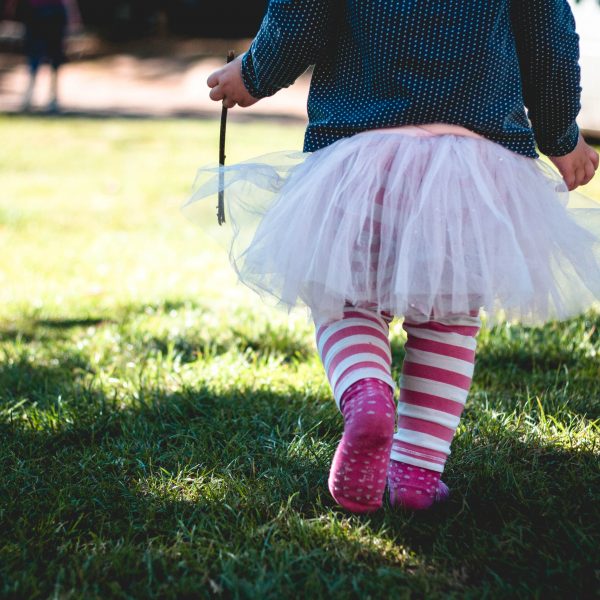Educators are worthy of care
opinion
The views expressed by contributors are their own and not the view of The Sector.

As a consultant, I am fortunate enough to be invited into the lives of early childhood professionals. More recently, many individuals seem to be exploring what educator wellbeing means for them both personally and professionally. The element that comes up most frequently can be found within the investigation of identity nurturing, specifically the concept of self-care.
Self-care is such a large and dynamic bubble, a contextually foundered perspective that can be manipulated, changed, enhanced or sacrificed. The differences that define what is classified as self-care changes between person to person, making it all the more difficult to plan for. Yet there is room to reflect on whether individuals find challenge in practicing self-care because it is a skill. Evolving around the actual principle of caring for oneself requires individuals to see value in themselves as influential in the lives of children and families, influential as co-workers critically reflecting on a daily basis, influential activists in policy and government – influential as professionals in the broader community.
So, what does it mean to care for this person who chooses to stand as an agent of change in the quality of educational outcomes for our youngest citizens?
Transferring the image of the child onto oneself
The perspective of the image of the child and how this impacts the way professionals interact, view and advocate on behalf of children is a perspective that can apply to educators with just as much significance. When educators view themselves and each other as influential and valuable within their professional community they are engaging within the image of self in a way that can positively enhance their overall wellbeing.
By analyzing the ‘self’ you open a door into self-reflection that challenges you to see your own ‘working beyond’ in equal balance to your own ‘working towards’. However, this does not occur in isolation and through stimulating a climate of reciprocity you enlighten individuals to own this sense of power. When this journey is owned as a non-negotiable and considered an ethical standard in future decision-making processes, educators are setting the benchmarks of a culture that is always moving toward continuous improvement.
The reflections individuals make on the choices enacted everyday encourages the consideration of different perspectives, a flip on the concept of the glass being half full or empty. By choosing to see yourself as a person who deserves to be valued in the early learning environment you encourage yourself to go looking for more, even when you do not think you need it at the time. But more doesn’t always mean more in quantity, but rather an increase in capacity, an increased capacity to care for yourself in a variety of ways.
Imagine the power that comes with confidently turning down any extra working commitments. A sense of self that lays envious in many early years professionals, but when you find this sense of self you boost your ability to fill yourself up in other areas. When you feel full, you are satisfied, you stop looking for more out of others and you start leading and modelling best practice in an authentically natural way. It feels effortless and with this altered sense of perspective, you see beyond where the fog previously lingered. But how do you get here? That place that tells you that you do not need to stay in the haze, clouded by exhaustion and poor nutrition choices. How do you find that place that welcomes you in safely and then shows you how to make decisions based on your own lived experience?

Define your image of a self-caring educator
To build capacity you need to be able to first define what it means to be an educator who acknowledges and practices self-care. Just as strands are woven into a mat, these foundations sit at the center of an individual’s identity but are evident in every decision they make. With this definition you are encouraged to chase the disposition of wellbeing, to notice, recognise and respond to its presence or absence in your routines, making changes where necessary. These practices are not unknown to the early years educator because these are the practices that shape the way they interact and reflect with children.
What comes from an educator reverse engineering these practices and defining this model of ‘self’ is the actioning and evidence of working theory for others that evolve around children. To witness the self-caring secure attachment in the early learning environment proactively finding time, space and energy to consider their own wellbeing, this is the action of ethics within the profession.
For families, this is essential to know that their children do not need to be battling against a tired and run down educator when all they want to do is play. Families come to services with their own preconceived ideas on what it means to be an advocate for children, sitting comfortably alongside their own image of the child. So, whilst the prospect of defining what a self-caring educator might look like seems challenging and may sit on a mountain of discourse, consider what it looks like to families? Consider what you want it to look like to families?
Setting the tone for families
Within the circle of security program, there is an acknowledgement that secure attachment is not being this model of perfection all of the time. Rather this is best achieved through experiencing those times of difficulty and then coming back to redefine past events. What sits at the core of this relationship-based program is the skill of self-awareness, the ability to not only see what is happening with a child before them but to also see how the adult has an equal role and influence within the situation at hand.
Held within the many roles and responsibilities of an early year’s professional is the task of guiding families as they work to maintain their overall wellbeing as a unit. The National Quality Standard also acknowledges the important bridge that services play in providing information to families that support their parenting role. When reflecting on the processes of building collaborative partnerships between educators and families there lays an opportunity to eliminate the stigma that lays around the traditional image of the educator. This is where the image of self, the image of the self-caring educator becomes significant.
Families turn to educators for guidance in a variety of ways, picking up on the most subtle of cues and interactions within the early learning environment. The empowerment building opportunities that educators provide families through the modelling and ownership of self-care is significant to them being able to translate these images of self within the home environment. With evidence-based research demonstrating that mental health issues arise from within the early years, it has never been so important to ensure that the adults within an early learning environment are embracing the shift in the image of the educator.
Avoiding the repetition – a pledge for contextualization
The difficulty that comes with unpacking educator wellbeing within the context of self-health is that many individuals will acknowledge the poor decision-making processes that they make within the course of their lives. Through the access and availability of the internet, the information provided for educators to make independent modifications to their routines with consideration to their own wellbeing is out there being consumed across a variety of media platforms.
What doesn’t come through this content is the need for individualized tailoring and contextual filtering of this information – making it specific to the range of educators whom come with their own histories, stories and established knowledge. This forces the question back into the sector, whose role is it to contextualize this content for educators within early learning services?
Leaders within a service, including educational leaders, have many things they are required to achieve and represent within their day to day positions. The responsibility to dive into educator wellbeing and health sits within the grey area of technical practice. The placement of a poster on the wall in the staffroom meets only a proportion of those educators whose contexts this resonates with. This example of technical practice is one that many services turn to in an attempt to action the things they feel are important or are elements they are currently working with. The purity that comes from the next process could, in fact, be the place where contextualisation gets lost.
Who determines when to action conversations about the poster on the wall? When does the technical practice turn into reflective practice, the place that pushes educators to continue to grow in knowledge and identity? For those who spend their time in the infants age group, the definition and understanding of self-care will be considerably different from those who work with preschool-age children.
Through the art of reflective practice, the simple notion of inquiring with the educators in your room may be enough to get the ball rolling within that network of professionals. Asking “Hey, what do you think that poster in the staffroom has to do with us in the infants age group?” or “How do you think that the practice of self-care would work for us in our room?” The modelling and commencement of professional conversations in an informal and relaxed environment – making the change within a culture for good and not for the novelty of assessment and rating or compliance.
Successful leadership and governance in this context are heavily defined by the culture within the service and the way professional conversations are facilitated. What is important to remember is that we have information for educators that works to build knowledge on meeting and maintaining overall wellbeing. Now is the time to make it contextual for your individual teams, for your individual educators.
Sarah first shared this piece with Storypark, and it has been reprinted here with publisher permissions. To view Sarah’s work in its original format, please see here.
Popular

Policy
Practice
Quality
Provider
Research
Safety starts with supervision: responding to real risks in ECEC
2025-07-07 10:30:58
by Fiona Alston

Policy
Practice
Provider
Quality
Research
Workforce
Beyond the headlines: celebrating educators and the power of positive relationships in early learning
2025-07-07 10:00:24
by Fiona Alston

Workforce
Policy
Quality
Practice
Provider
Research
ECEC must change now, our children can’t wait for another inquiry
2025-07-02 07:47:14
by Fiona Alston













